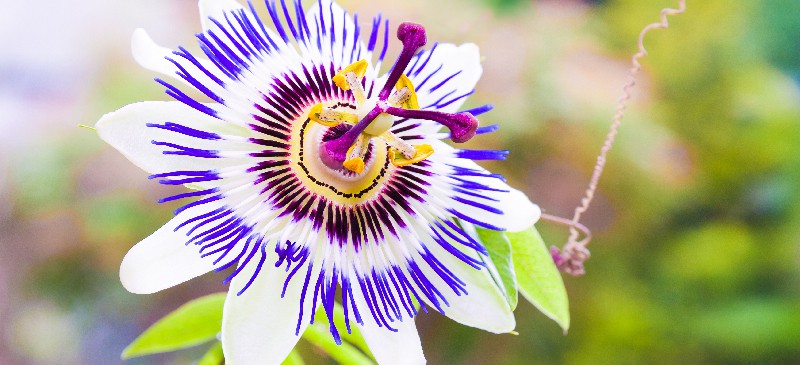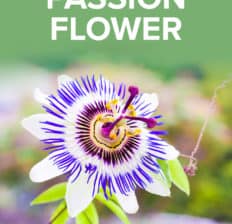This Dr. Axe content is medically reviewed or fact checked to ensure factually accurate information.
With strict editorial sourcing guidelines, we only link to academic research institutions, reputable media sites and, when research is available, medically peer-reviewed studies. Note that the numbers in parentheses (1, 2, etc.) are clickable links to these studies.
The information in our articles is NOT intended to replace a one-on-one relationship with a qualified health care professional and is not intended as medical advice.
This article is based on scientific evidence, written by experts and fact checked by our trained editorial staff. Note that the numbers in parentheses (1, 2, etc.) are clickable links to medically peer-reviewed studies.
Our team includes licensed nutritionists and dietitians, certified health education specialists, as well as certified strength and conditioning specialists, personal trainers and corrective exercise specialists. Our team aims to be not only thorough with its research, but also objective and unbiased.
The information in our articles is NOT intended to replace a one-on-one relationship with a qualified health care professional and is not intended as medical advice.
Passion Flower for Hot Flashes, Depression & Better Sleep
March 10, 2023

With a name like passion flower, it can only be something kind, gentle and calming from nature. While that doesn’t hold true for all sweet names, it does hold true for the passion flower, a wildflower of striking beauty that produces a fleshy fruit, called passion fruit.
There are many passion flower benefits. For instance, it may with insomnia, anxiety, inflammation from skin irritations and burns, menopause, ADHD, and even more serious conditions, such as seizures, high blood pressure and asthma, just to name a few.
Passion flower is a plant in which the parts of the plant above the ground are used, in different forms, to provide natural healing purposes and food flavoring. You may have heard of passion flower tea or passion flower extract — it’s also found as infusions, teas, liquid extracts and tinctures.
It’s common to see passion flower combined with other calming herbs, such as valerian root, lemon balm, chamomile, hops, kava and skullcap.
A perennial, climbing vine, passion flower is typically grown in Europe but native to the southeastern parts of America. Common names are maypop, apricot vine, passion vine and passiflore.
Benefits of Passion Flower
1. May Help Reduce the Effects of Menopause
Menopause is associated with feeling of anxiety and depression, often caused by low levels of gamma-aminobutyric acid (GABA), which is a chemical in the brain. Hormone therapy that relies on modern medicine can create a lot of unwanted side effects.
Studies have been conducted that show that passion flower can treat menopausal symptoms, such as vasomotor signs (hot flashes and night sweats), insomnia, depression, anger and headaches, and it may be an alternative to conventional hormone therapy.
Women are seeking natural remedies more and more, and passion flower may help by increasing the levels of GABA. When the levels of GABA are increased, it helps decrease the activity of some of those depression-inducing brain cells.
The alkaloids in passion flower also may prevent the production of monoamine oxidase, which is exactly what anti-depressant medication tries to do. Studies have shown that it may reduce depression, a common problem for women in menopause, including research conducted on animal models.
Another study showed that passion flower may reduce those annoying hot flashes. The study used various herbal remedies, and the results showed that anise, licorice root, black cohosh, red clover, evening primrose, flaxseed, St. John’s wort, valerian and passion flower may alleviate hot flashes in those who are menopausal as well as those who are premenopausal.
2. Helps Lower Blood Pressure
The Journal of Nutritional Biochemistry conducted a research study using passion flower skin extract. The study found that blood pressure levels were significantly reduced, likely due to the GABA-promoting properties of the extract.
Animal studies that have been published indicating passion flower fruit pulp as a potential remedy for reducing systolic blood pressure by administering eight milligrams of passion flower for a period of five days. The results indicated that passion flower extract increased levels of an antioxidant enzyme and decreased levels of oxidized lipids that can cause damage from the accumulation of toxins and waste products in the body.
3. Can Reduce Anxiety
Passion flower may be helpful in reducing anxiety and has long been known as a folk remedy. It’s believed that certain compounds found in passion flower may interact with some receptors in the brain, provoking relaxation.
Because passion increases GABA, the activity of some brain cells that may cause anxiety is lowered and makes you feel more relaxed. Studies suggest that passion flower extracts may even have mild anti-inflammatory and anti-seizure benefits.
One study investigated passion flower’s effects on general anxiety disorder. The researchers concluded: “This study noted that passion flower might be suitable as an add-on in the treatment of generalized anxiety disorder with low side effects. Further studies with longer duration are recommended to confirm the results of this study.”
Another study involving children showed that nervousness was reduced after the use of the combined plant extracts to include passion flower, St. John’s Wort and valerian root.

4. Helps Address ADHD Symptoms
Attention deficit hyperactivity disorder (ADHD) seems to be an ongoing concern for many parents, and sadly, conventional drugs such as Adderall can cause many unwanted side affects. ADHD is a disorder of the brain that manifests in symptoms such as inattention, hyperactivity and impulsivity that interfere with a child’s development or daily activities.
The good news is that a survey showed parents opting for alternative ADHD treatments more and more, with nutritional therapies at the top of the remedy list. Herbs such as Roman chamomile, valerian, lemon balm and passion flower have been noted as possible treatments, though it’s always important to check with your physician first since some may cause allergic reactions.
5. Helps Reduce Insulin Levels
A study was conducted using yellow passion fruit peel flour to see how it affected blood sugar levels.
Insulin sensitivity was evaluated in an effort to better understand insulin resistance in diabetics. To conduct the studies, 43 volunteers with type 2 diabetes (28 females and 15 males) were asked to take a certain amount of yellow passion fruit peel flour for a period of two months.
The results showed a decreased insulin resistance in type 2 diabetic patients, which suggests that passion flower may benefit diabetic patients.
6. Can Improve Sleep
Sleep is one of the most important things you can do for your body, and we all love a good night’s sleep! Studies were conducted on patients who had problems sleeping. The study, focusing on patients with bipolar disorder, tested various natural herbal medicines, including passion flower, and the results showed an improvement in sleep, possibly by reducing anxiety.
A double-blinded, placebo-controlled study involved patients required to drink passion flower tea for week. Participants showed statistically significant sleep improvement.
Passion flower, combined with valerian root, may be one of the best combinations to help with insomnia and could be ideal if you seem to have trouble turning off the brain at night by calming the cells within it.
7. Reduces Inflammation
Passion flower may reduce disease-causing inflammation.
Analyses were conducted of the phytonutrient and antioxidant contents of the wild passion fruit species, specifically P. tenuifila and P. setacea. The researchers paid most attention to the seeds and the explants from seedlings, as well as the adult version. The high level of phenolic compounds showed the powerful antioxidant activity of the extract of the passion flower plant.
Another study was conducted on paw edema, which is the buildup of fluid in the paw area of animals. When using dried passion flower, the antioxidant activity decreased the fluid buildup, indicating the reduction of inflammation.
Uses
There are several ways to take passion flower. Most common are infusions, teas, liquid extracts, tinctures and capsules.
Take a trip to your local health food store, and see what options it has. You may want to try an infusion or tea by steeping a teaspoon of the dried herb in a cup of boiling water for about 10 minutes. Then strain and sip.
You can also try adding passion flower to your bath water for relaxation. The typical dose of passion flower is about one to two grams, finely chopped. You can make a tea by steeping a teaspoon of dried herb in a cup of boiling water for a few minutes, and you can have two or three cups throughout the day.
If you are taking it to help with sleep, make sure to drink at least an hour before going to bed.
Prepare tea by using a saucepan. Bring the water to a low boil, and then turn off the stove.
Add the herbs to the water. You can use a muslin bag or tea infuser. Cover with a lid right away so the oils from the flowers do not evaporate.
Allow it to steep for about 10–12 minutes. Remove from the stove, strain if needed and pour yourself a cup. Then add some local, organic honey if desired. Try this at any time when you may feel anxious or at night before bed.
Risks and Side Effects
At one time passion flower was approved as an over-the-counter sedative and sleep aid in the U.S., but in 1978, it was taken off the market due to safety concerns and lack of testing. While studies indicate many positive uses for passion flower, always check with your doctor before taking any new herb in any form.
If you experience nausea, vomiting, drowsiness or any other odd symptoms, even if after a few days, please seek the help of a physician. Do not take if you are pregnant, breastfeeding or have medical problems. It may not be suitable for children under 6 months of age.




